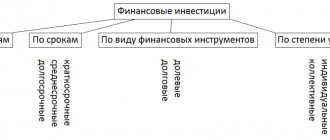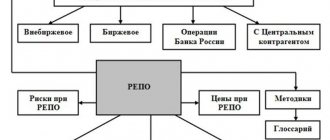Lawyers strongly recommend that all types of transactions be documented, especially when large sums of money are involved. The investor and the customer always draw up an investment agreement - a document that takes into account all the details of the agreement reached . Investments in themselves are a risky thing, so a well-executed investment agreement can protect both the customer and the investor from some unforeseen situations.
General concepts
The investment activity agreement confirms the relationship between the investor and the customer, and also defines their rights and obligations. The customer and the investor are equal parties to the contract. In this case, the customer is considered to be the one who leads the project . Usually this is the head of an enterprise or organization whose activities require investment. It is he who takes full responsibility for the funds received. The customer's side is obliged to fulfill all clauses of the contract and confirms this with his signature. The customer is responsible for the result of the investment operation and all financial activities.
The investor can be either a legal entity or an individual . He gives his funds for management and expects to receive the agreed profit. On the part of the investor, the document may specify requirements for possible risks or drawdowns. On the other hand, an investment agreement may contain a clause on the investor’s obligation not to interfere in the course of financial activities until the end of the stipulated period.
Some areas of activity may include a third party in the document, for example, a contractor or investment agent. For example, such an area is construction. The agent, as a rule, receives a percentage of the amount for which the transaction is concluded and assists in finding investors and concluding new contracts. But for the customer this is a fairly profitable option, since the commissions are very small compared to the contract amounts.
An investment agreement implies that all parties receive benefits : the investor increases his capital, and the customer, as a rule, receives a completed project and a reward. The source of profit is the activities of the project.
Similar articles:
- how and where to find an investor for a business
- how can you become an investor
- types of business investments
- analysis of the investment project
What is innovation?
Novation of debt is the replacement of one obligation with another by agreement between the parties. The main sign that a transaction is a innovation is the cancellation of an existing obligation. At the same time, all additional ones stop.
Important: upon conclusion of the agreement, the obligation to pay the penalty under the previous agreement also ceases.
Such an agreement is concluded only between business entities; tax arrears cannot be reformed in this way. An example of innovation could be the replacement of a real estate lease agreement with a purchase and sale agreement. But the establishment of a new deadline for the fulfillment of an obligation or a change in the place of fulfillment cannot be considered a novation, since the replacement of one obligation with another does not occur.
Terms of agreement
The investor and the customer discuss the details of the future project and find out absolutely all aspects of future activities. They need to come to an agreement that suits both parties.
The transfer of money to the customer must be documented. This helps to increase the reliability of the transaction, its legality and transparency. Documentary evidence reduces the risk of loss of funds for the investor and makes it possible to resolve controversial issues, including in court. The funds are transferred to ownership or management, which is not significant. The general mechanism implies the very fact of the customer borrowing from the investor with any form of subsequent use of the funds . The process of transferring money can occur in the following ways:
- After signing the agreement, the investor immediately transfers the required amount in the agreed manner.
- Funds are delivered to the customer in installments. This option is acceptable for both parties if: The customer needs money gradually, over a certain period of time.
- The parties' trust in each other is not at the highest level and the investor wants to play it safe.
The customer invests the money received in the project and independently monitors all ongoing processes, as well as the amounts of costs and profits. On a certain date, which both parties agree on in advance, the customer returns the investor his remuneration for the investment.
An investor can receive interest in two ways:
- Fixed amount. The result of the investment project does not affect the amount that the investor receives - it is a fixed and unchanging figure. Payments must be made exactly on the agreed dates. Minor amendments can only be made with the consent of both parties.
- Part of the profit. The amounts of such payments are usually approximate. For long-term investments, it is quite difficult to give an exact figure. The parties start from the average expected profitability and set a percentage of the money actually received. Many investors try to avoid such arrangements because of the uncertainty involved. Customers, on the contrary, are committed to concluding such contracts, because this makes it possible to take into account unexpected changes in the macroeconomy, inflation and other unforeseen circumstances.
The method of payment of remuneration is agreed upon in advance and must be specified in the contract in order to avoid any misunderstandings.
Commentary to Art. 414 Civil Code of the Russian Federation
1. Despite the apparent simplicity of the rules set out in the commented article, as well as the detailed development of relevant problems in legal science, understanding the concept of innovation is a certain difficulty.
Following the letter of the law, novation is an agreement (agreement) that is reached by the parties to an existing obligation; it (the agreement) extinguishes (terminates) the previous obligation and creates a new one, which, in turn, provides for a different subject or method of execution.
2. The concept of “subject of execution” is not one of those studied in detail. Apparently, the subject of performance is the subject of the obligation. But the concept of “subject of obligation” is quite contradictory. On the one hand, by virtue of the obligation, the debtor is obliged to perform a certain action in favor of the creditor (transfer property, perform work, pay money, etc.) (Clause 1 of Article 307 of the Civil Code). Therefore, the subject of the obligation is action. On the other hand, in relation to individual contracts, the objects are things, rights, work (results of work), services, etc. Thus, the subject of the contract for the sale of real estate in the law is real estate (Article 554 of the Civil Code); objects (objects) of rent are non-consumable things (Article 607 of the Civil Code); a contract is concluded for the manufacture or processing (processing) of a thing or for the performance of other work with the transfer of its result to the customer (clause 1 of Article 703 of the Civil Code); under a contract for the provision of paid services, the contractor undertakes to provide services (perform certain actions or carry out certain activities) (clause 1 of Article 779 of the Civil Code), etc. Thus, from the definition of an obligation (Article 307 of the Civil Code) it follows that the subject of the obligation is an action; further, the law proceeds from the fact that the objects of the obligation are things, rights, works, services.
The novation agreement may provide for another subject of performance. The debtor undertakes to transfer another thing instead of one thing or pay money, perform work, provide a service, etc.
3. Novation may provide for a different method of fulfilling the obligation. When they talk about the method of execution, they mean execution as a whole (in full) or in parts (in stages). Thus, an existing obligation to pay the entire amount can be replaced by an obligation providing for the replacement of the original obligation with a new one, by virtue of which payment will be made in installments. At the same time, it is not always the case that an agreement between the parties that changes the terms and procedure for settlements means a change in the method of fulfilling the obligation. Thus, when considering a specific case, the court indicated that the agreement on the procedure for repaying the debt does not contain any indication that this agreement terminates any obligations of the borrower. The agreement does not contain conditions on changing the method of fulfilling the borrower’s obligation - it remains the same (payment of funds to the lender); a change in the terms and procedure for repaying debts does not constitute a change in the method of fulfilling the obligation. According to paragraph 1 of Art. 450, paragraph 1, art. 453 of the Civil Code of the Russian Federation, an agreement on the procedure for repaying a debt represents a change in the loan agreement, therefore the obligations arising from the loan agreement have been preserved.
——————————— Information letter of the Presidium of the Supreme Arbitration Court of the Russian Federation dated December 21, 2005 N 103 “Review of the practice of application by arbitration courts of Article 414 of the Civil Code of the Russian Federation” (clause 1) (hereinafter referred to as Review of the practice of application by arbitration courts Article 414 of the Civil Code of the Russian Federation).
4. Although the commented article does not mention this, innovation can be expressed in the replacement of an obligation of one type with an obligation of another type. So, by virtue of Art. 818 of the Civil Code of the Russian Federation, by agreement of the parties, a debt arising from the purchase and sale, lease of property or other grounds may be replaced by a loan obligation; the replacement of a debt with a loan obligation is carried out in compliance with the requirements for novation. There are no grounds for contrary actions, when a loan obligation is transformed into an obligation to transfer a thing, perform work, provide services, or assign a right.
In appropriate cases, it is considered that the relations of the parties as a result of innovation are simplified, become more understandable, and transparent. It appears that only the appearance of this is being created, since in the event of a dispute there is nothing left to do but to examine the pre-existing obligation. So, if, suppose, a debt arising from a purchase and sale agreement is replaced by a loan obligation (clause 1 of Article 818 of the Civil Code), then the borrower has the right to challenge the loan agreement due to its lack of funds (Article 812 of the Civil Code). This means that if there is a dispute, you will have to turn to the terms of the purchase and sale agreement in order to establish that there was a debt from this agreement, which was converted into a loan obligation.
Several initial obligations can be novated into one new one or, conversely, one original obligation into several new ones.
Novation of part of the obligation is acceptable.
5. An indispensable sign of innovation is the direction of the will of the parties to the agreement towards the termination of an existing obligation and the emergence of a new one or to replace the original obligation with another.
The essence of novation is to replace the original obligation that previously existed between the parties with another, with the simultaneous termination of the original obligation. Novation occurs only when the actions of the parties are aimed at ensuring that the obligation is novated. There is no intention to innovate. If the parties intend to make a novation, they must clearly express this.
It must definitely follow from the agreement that the parties intended to replace the original obligation with another, which entails legal consequences for them, in particular, the inability to demand fulfillment of the original obligation.
——————————— Review of the practice of application by arbitration courts of Art. 414 of the Civil Code of the Russian Federation (clause 2).
6. The novation agreement is an ordinary civil law contract. Consequently, its conclusion and execution are subject to the general rules of the contract.
The essential terms of the new commitment must be agreed upon.
It is most preferable to formalize such an agreement as a contract between the parties to an existing obligation, in which the will of these entities to terminate one obligation and the emergence between them of a new obligation of a different type or with a different subject or method of execution is clearly expressed.
Unfortunately, most often the parties to an existing obligation, wanting to change something in their relationship (including the subject or method of execution), enter into an additional agreement to the previously concluded agreement. Since it does not follow from such an agreement that an existing obligation is replaced by a new one, there is a change in the obligation, but not a innovation.
On formalizing the novation of debt into a loan obligation in clause 2 of Art. 818 of the Civil Code of the Russian Federation contains a special instruction: the replacement of a debt with a loan obligation is carried out in the form provided for concluding a loan agreement.
7. The obligation arising as a result of novation is derived from the original obligation. Therefore, if the transaction that gave rise to the original obligation is declared invalid, then the novation agreement will also be invalid.
If the novation agreement is declared invalid, then the original obligation continues to exist.
Novation only terminates an obligation when the agreement to replace the original obligation with a new one meets all the requirements of the law, i.e. concluded in a form specified by law, an agreement has been reached between the parties on all the essential terms of the obligation established by the parties and the transaction is valid.
——————————— Ibid (item 3).
8. Any obligations, both contractual and non-contractual, can be novated. It seems that even a categorical prohibition of novation of obligations to compensate for harm caused to life or health should be understood as the inadmissibility of replacing them with an obligation of another type. Thus, it is impossible to replace these obligations with borrowed obligations. However, the alimony obligation, while remaining unchanged in essence (the obligation to provide maintenance remains), may well be novated if the payment of alimony is made on the basis of an agreement on the payment of alimony. In accordance with Art. 104 of the RF IC, the methods and procedure for paying alimony under an agreement on the payment of alimony are determined by this agreement. Alimony may be paid in shares of the earnings and (or) other income of the person obligated to pay alimony; in a fixed sum of money paid periodically; in a fixed sum of money paid at a time; by providing property, as well as in other ways regarding which an agreement has been reached. The alimony agreement may provide for a combination of different methods of alimony payment.
The parties can terminate the alimony agreement and enter into a new one, providing for a different method of paying alimony than before, or a combination of methods.
9. Additional obligations associated with the initial obligation are legal relations regarding the payment of a penalty, collateral, etc. The novation agreement or a separate agreement may provide that these additional obligations continue to exist. In the absence of such agreements, additional obligations are terminated. Thus, unless otherwise provided by agreement of the parties, from the moment of concluding the novation agreement, the obligation to pay for the period preceding the conclusion of the said agreement the penalty accrued in connection with the delay in fulfillment of the initial obligation by the debtor ceases.
——————————— Review of the practice of application by arbitration courts of Art. 414 of the Civil Code of the Russian Federation (clause 4).
At the same time, it is necessary to take into account the specifics of certain additional obligations. For example, the condition of a novation agreement, which provides for the preservation of additional obligations of the mortgagor, who is not the debtor, associated with the original obligation, is void. In this case, the parties to the new obligation cannot preserve the collateral relationships that did not exist between them. A different conclusion would contradict paragraph 3 of Art. 308 of the Civil Code of the Russian Federation, according to which an obligation does not create obligations for persons not participating in it as parties.
Liabilities
The investment agreement protects the interests of both the customer and the investor . It defines the actions that both parties must take. The most important points taken into account in the standard contract are the following:
For the customer
- Meeting project deadlines
- Providing reports on financial activities and project progress.
- Submission of the results of the activities carried out.
- Providing all necessary documents.
- Involving specialists or contractors to implement the project and conclude a contract.
- Control of allowable expenses.
- Control of all activities related to the project.
- Repayment of all borrowed funds within the prescribed period.
For the investor
- Transfer of the agreed amount of money without delays or changes.
- Checking the results of investment activities and accepting the project.
- Payment of remuneration.
- If necessary, preparation of all documents upon completion of the project - registration of ownership and registration with the necessary government agencies.
Types of investment agreements
We classify contracts depending on the investment objectives and other terms of the agreement identified by the parties as essential.
The main ones are investment agreements under Federal Law No. 39-FZ dated February 25, 1999 “On investment activities in the Russian Federation, carried out in the form of capital investments.”
Government contracts signed on the basis of the specified Federal Law should be distinguished from agreements in which private individuals act on both sides. Such contracts are concluded for the purpose of construction or reconstruction of state capital construction projects or acquisition of real estate objects into state ownership during the implementation of business projects.
Companies enter into an investment contract under 44-FZ - Federal Law dated April 5, 2013 No. 44-FZ “On the contract system in the field of procurement of goods, works, services to meet state and municipal needs.” Their distinctive feature is investment in the form of capital investments.
If investors are needed under 44-FZ, they attract capital investments and enter into a special agreement. Capital investments are the same investments, but aimed exclusively at fixed capital (fixed assets of the enterprise). We are talking about design and survey work, modernization of existing enterprises, updating machines, introducing modern technological equipment, updating tools and equipment.
Important points
All the wording and clauses that the investment agreement contains are very important and can affect the outcome of resolving controversial issues. Qualified lawyers can draw up the right contract, and you should contact them if you have the slightest doubt. It is better to spend more time drafting and studying the document than to later become a victim of scammers or your own ignorance. The lawyer needs to show the previously drawn up contract and explain in words what you really want. Then the specialist will be able to point out inaccuracies and ambiguous points in the document, and also suggest the correct spelling. In addition, the lawyer will check the document for compliance with the latest legislation, which not every businessman can do.
Be sure to pay attention to the following points in the contract:
- Title of the document.
- Date and time of conclusion.
- Parties' data.
- Individual information about the project - goal, deadlines, amounts.
- Rights of both parties.
- Responsibilities of both parties.
Similar articles:
- what are investment risks –
Registration process
The parties can draw up an agreement themselves. There is no need to contact a lawyer for this.
There is no single form of document regarding the novation of a loan agreement. Accordingly, during its preparation it is necessary to be guided by the norms of the Civil Code. Alternatively, you can use the form of the first document.
In this case, it is necessary to take into account the following conditions for concluding the contract:
- The signatories of the document do not change; the parties are the same as when drawing up the original document. Both participants must agree to change the terms.
- The item must be changed, otherwise it will not be considered a contract of novation.
- There must be a connection between the papers. That is, the document must indicate which obligation is changing.
Attention! Before drawing up, you need to take into account that all the conditions of the previous document are eliminated immediately after signing the new one.
Therefore, you should write down all the conditions, otherwise you may run into trouble later. You also need to keep in mind that the innovation cannot be applied to alimony and payments related to the health and life of citizens.
Document structure
There should not be any difficulties with drawing up the contract. It is recommended to adhere to the following structure:
- Title, date and place of compilation. It is recommended to register each of the parties immediately below these data.
- Definition of the subject of the contract. In this part, it should be indicated that one of the parties has incurred a debt, which must be converted by drawing up an agreement.
- Terms of use of funds. At this point it would be useful to indicate the current interest rates and the amount of penalties.
- Dispute resolution. Important point. It prescribes a mechanism for resolving disputes that may arise between the parties.
- Additional terms and conditions. This part of the document should contain all the nuances that are not included in other paragraphs.
Read about the conditions and procedure for bankruptcy of a deceased citizen.
And here we are talking about whether people are imprisoned for non-payment of a loan in Russia.
Follow the link to the article “Features of bankruptcy of insurance companies.”
After this, the details of each party are written down and signatures are affixed.
Project price
The investment agreement necessarily establishes the price of the project. For an investor, it means the full amount of necessary investments, which includes all expenses for the cost of materials, remuneration, specialist services, acceptable risks, technical equipment and other expenses.
The project price represents the approximate amount or acceptable range of required investments . To calculate exact figures, small adjustments or indices are used that take into account possible changes in prices for materials or services.
If the project deadlines are violated, its price may change. In this case, the value is adjusted in the interests of the party that suffered the loss.
How to conclude an agreement with an investor with the help of a lawyer?
The customer is the person involved in the project. An investor can be any person who has the funds to invest in a project. For example, when it comes to concluding an investment agreement for the construction of a non-residential building.
The subject of the agreement for one party will be investment in the project, and for the other – the project itself.
To successfully conclude an investment agreement, it is mainly necessary to find a suitable investor. Quite often, this question leads a novice entrepreneur to a dead end. Starting a good business without starting capital is not an easy task and not everyone can do it. Next, contact us at the Law Office “Katsailidi and Partners” for assistance in drawing up all the necessary documentation.
Drawing up an investment agreement in Yekaterinburg
- we will develop an investment agreement between legal entities
- We will support the investment agreement between individuals
- We will show you the most successful areas for investment
- We'll tell you how to find an investor
- we will help you find it and check for possible risks when working with it
- We’ll tell you how to properly present your project to an investor.
- We will provide full support for investment projects as part of the ordered legal assistance
Tips for investors
The investor bears significantly greater risk. If the outcome of the project is unfavorable, it is he who will not receive his funds back, and the customer, in most cases, will simply limit himself to moral worries. Such an end to the project should definitely be considered when writing a contract and you should protect yourself in advance by including in the contract a corresponding clause on the payment of a penalty.
To minimize possible losses and unsuccessful investment outcomes, the investor should:
- Find out the details of the other party’s legal life - the company’s reputation, credit history.
- Personally make sure that all title documents are available: land, equipment, etc.
- Check whether there is a permit to carry out the relevant work or a license for a certain type of activity. Pay attention to the expiration date of such documents and check them with current legislation.
- If there are similar investor partners, study their rights and obligations to the company of interest.
Form of novation agreement
The form of the novation agreement is determined according to the general rules of Chapter 9 of the Civil Code of the Russian Federation on the form of transactions and Articles 434 and 452 of the Civil Code of the Russian Federation on the form of contracts.
In the case where an obligation arising from a registered agreement is novated, the corresponding novation agreement is also subject to state registration, since, in essence, such an agreement entails a change in the registered agreement (Clause 2 of Article 164 of the Civil Code of the Russian Federation). But the consequence of the absence of such registration will not be the invalidity of the innovation, but the absence of such an agreement of legal consequences in relation to third parties (clause 3 of Article 433 of the Civil Code of the Russian Federation).
Signs of an investment agreement
There is no clear definition of the term “investment agreement” in Russian legislation. Also, the entities that can enter into this type of agreement and the objects that can be specified in it are not regulated anywhere. Lawyers believe that an investment agreement differs from other agreements in the presence of the economic content of the document and the formulation of generating income as the goal of joint activity. The features of an investment agreement include:
- Long-term cooperation between the parties.
- Mutual benefit – investing money in exchange for income, real estate or other project outcome.
- The basis of the agreement is a commercial proposal, project documentation.
- There is commercial interest.
Termination of the contract with the investor
Like any agreement, an investment agreement can be terminated by agreement of the parties, by a court decision, in the event of unilateral refusal of the agreement.
- Termination by agreement should not raise any questions, i.e. both parties agree to terminate the contract and they terminate it by entering into an agreement to this effect.
- Termination through court is possible due to a significant violation of the terms by the other party or on other grounds specified by law. But before going to court, it is necessary to comply with the pre-trial procedure.
With unilateral refusal of a contract, everything is not so simple, since such a right of the parties must be provided for in the contract. If the contract does not provide for unilateral termination, then it cannot be terminated in this manner. If the right of unilateral refusal is spelled out, then the procedure for notification of this, entry into force of the decision, etc. must also be spelled out.
USEFUL: watch a video about us to understand why they choose us to help solve their problem, write your question in the comments of the video on YouTube
Implementation stages
We have found out the main points, taking into account which an investment agreement should be drawn up. The following are the stages of its implementation.
- The first is preparation. Here all the actions necessary to carry out financial calculations are carried out. The customer prepares an economic justification for the required amount, shows the design documentation, and prepares the technical base. At this stage, the customer provides aggregate information on the future project, while all numbers and the list of works or necessary services may be approximate. Often this aggregate information is provided in the form of a business plan, which outlines the need for certain costs and the benefits of implementing the project.
- The second is the actual implementation. At this stage, all agreements have been reached and terms have been agreed upon. The investor transfers money to the customer, and the project is launched. The parties enter into an agreement, and the customer attracts all the necessary contractors and specialists.
- The third is operational. Small adjustments may be added to the implemented project - the supply of additional resources, the solution of problems that have arisen at the site.
The implementation of the project ends with the acceptance of the object by the investor. This must be confirmed by relevant documents, for example, an acceptance certificate. After this, the investor draws up all subsequent documents in his name.
In the field of pure financial investments, for example, the transfer of money to management for trading on the stock market, the result of the investment is the payment of profits to both parties, in accordance with the terms of the previously drawn up agreement. The necessary documents are also drawn up to ensure that all the terms of the contract have been fulfilled and the parties have no claims.
If desired, the investment cooperation agreement can be extended by drawing up an additional agreement. The conditions for extending cooperation may differ from those previously established. All amendments and changes must be indicated in the additional agreement.
Transferring an object
If we take the real estate sector as an example, then after a person owns the right to lease land, he undertakes to obtain permission to put into operation this building complex.
It is important to take into account the fact that the lease agreement must also be valid for the period when the construction work is already completed. Otherwise, the built house will be considered as built without the knowledge of the owner and such a house will be subject to demolition. And if there is no lease document, investors can appropriate it for themselves without the knowledge of the customer. Of course, there will be an opportunity to return it back, although it will be quite difficult to do this. The procedure for transferring an object:
- the customer obtains permission to put it into operation; the house must be registered in the state management register;
- after registration, the customer notifies the customer in writing of his readiness to transfer ownership of the object, sets a time and date for the transfer, where everything will be legally formalized;
- After the investor has inspected the property and found that there are no defects, he signs the transfer and acceptance certificate, and then goes to the state registry office to register the premises as his property.
In any case, there are risks that the parties to the investment agreement are wary of, the main ones being:
- The premises have been redeveloped. This incident was not reflected in the contract. One of the parties is not aware of the changes;
- The customer does not have ownership of the land. Such construction will be declared invalid and the house will not be put into operation;
- The object does not meet the characteristics that are clearly stated in the contract;
- The area of the premises is smaller or larger than that specified in the contract;
- The construction of the facility was not carried out with high quality, there are deviations from established standards.
Key points
No matter how profitable your future investment may seem to you, it is better to take your time and follow the basic rules:
- Don't believe the words - ask for documents. This applies to both the documents of the individual or legal entity with whom you are drawing up an investment agreement, as well as your mutual obligations. Everything must be documented.
- Consult with specialists. Involve lawyers to study the drafted contract and correctly formulate those aspects that you want to include in it. Official organizations that can help check the reputation or credit history of the subject of interest can also be useful.
- Consider the details. Absolutely everything is important – from timing and cost to solving problem situations that may not exist. All points must be measurable and provable, no abstract or controversial formulations. Use dates, numbers, comparative ratios.
- Include clauses in the investment agreement regarding various outcomes of the project completion. Describe the conditions under which you will part with the customer in case of success and in case of a negative outcome. The classification of investment agreements and their correct structure are not provided for by law. The only thing that gives the parties the right to control each other’s actions is the clauses of the contract. The more requirements are written, the better.
- Protection by law. You can protect yourself from bought judges or unfair dispute resolution if the case is heard by a court in a foreign country. This point can be specified in the contract. Abroad, an investment agreement is considered on the basis of the law, and not “by acquaintance”.
- Correct financing structure. Decide on the bonus you will receive - it will be only cash or a share in the company. Each option has its advantages and disadvantages.
An investment agreement is not just a written document of agreements. This is a document regulating the boundaries of rights and requirements for the responsibilities of two partners. The investment agreement must be drawn up after careful study of all documents and information relevant to the case. Only a clear formulation of rights and responsibilities can lead to a successful result and a high-quality execution process.
Nature of the investment agreement
In a legal sense, this is a written agreement on the basis of which the investor finances a business project, and the recipient of the investment implements this project. This type of contract, such as an investment contract, is not legally established, but is widely used.
The Civil Code explains which contracts are classified as investment - mixed, which contain elements of various obligations. An analysis of judicial practice shows that courts accept such a contract as adequate evidence of a transaction, operate with the concept of “investment agreement”, and in the reasoning part of decisions they refer to Articles 420–423 of the Civil Code and apply general provisions on obligations (Articles 307–419 of the Civil Code of the Russian Federation ).
A significant problem is that the legislator has not established the essential terms of the investment contract; as a result, lawsuits arise to recognize the agreements as not concluded. Analyzing the current practice, we will define what an investment contract is:
- The parties to the agreement are a municipality, a subject of the Russian Federation, the Russian Federation, an individual or a legal entity. An investment agreement is also concluded between individuals and legal entities.
- Investors (depositors) invest their own material resources in the project being implemented.
- The customer (recipient of investments) implements the project under certain conditions and with the aim of making a profit.
- Contractors, subcontractors, and co-investors are additionally included as parties to the contract.
- The object of the agreement is the development of small businesses (start-ups), construction, modernization, restoration, re-equipment, newly created property complexes and enterprises.
- Investments are material goods (money, real estate, securities) invested in a business project by an investor in order to make a profit or achieve another useful effect.
Use free instructions from ConsultantPlus experts to understand the taxation of special investment contracts within the framework of government procurement.
The municipal investment contract is most often used in construction. Investment partnership agreements and interest-free investment loans are concluded. Securing investments depends on the risks of the project and the requirements of the attracted investor; often, a pledge of intellectual property (know-how, inventions, programs) and shares in an LLC is used as security for loan repayment.
In order to optimize taxes, the investment agreement must also contain provisions that comply with the requirements of the tax legislation of the Russian Federation.
SPIC 2.0
In 2021, a law was signed on updating the mechanism of special investment contracts - SPIC 2.0 (290-FZ dated 08/02/2019). According to the new rules:
- the subject of a special investment contract is the implementation or development and implementation of technologies from the list of modern technologies approved by the RF Government No. 319 of 03/21/2020;
- the public side of the SPIC is the Russian Federation, together with the constituent entity of the Russian Federation and the municipal entity;
- the terms for concluding a SPIC have been increased: the contract is concluded for no more than 15 years for the implementation of projects with an investment of up to 50 billion rubles (excluding VAT) and for no more than 20 years with investments over 50 billion rubles (excluding VAT);
- SPICs are concluded based on the results of open or closed competitions, except for those SPICs that are signed by decision of the President of the Russian Federation or when only one application for participation in the competition is submitted;
- government support measures are terminated from the moment of exceeding, if the investor finances government orders, and the total volume of expenses and lost budget revenues exceeds 50% of the total volume of capital investments that the investor invested in the project;
- all information about investment contracts is included in the SPIC register;
- guarantees of stability for the investor are that from the date of conclusion of the SPIC and during its validity period, the investor is not subject to legislative acts that came into force after the conclusion of the investment contract and which introduce restrictions and prohibitions on the exercise of rights acquired or exercised by the investor for the purpose of implementation of SPIC.
The new mechanism comes into force in 2021. Key differences between SPIC 2.0 and SPIC 1.0:
- Cancellation of the investment threshold.
- Increasing the validity period of the special investment contract.
- The need to use modern technologies.
- Simultaneous participation of the Russian Federation, the subject and the municipality.
- Competitive basis and submission of applications through GISP.











